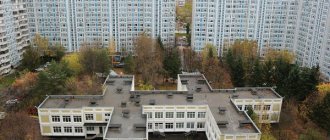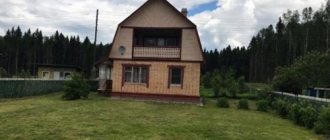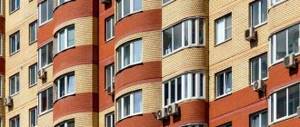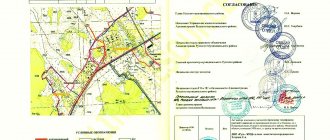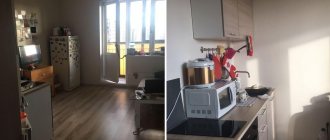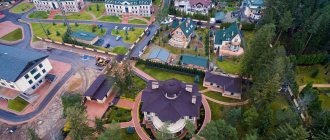Before buying an apartment, each of us thinks about which floor is better to live on. The solution to this issue depends not only on personal preference, but also on comfort and safety.
For example, the first floor is still in disgrace among the Russians. The discount on such apartments is very significant, in some cases even reaching 20 percent. However, the top floors are also sold at a reduced price, because few people want to face a roof leak or become a victim of a thief who can climb into the apartment directly from the roof. Although it is fair to note that all this is relevant exclusively for old high-rise buildings.
In modern houses there is a technical floor under the roof, and in elite high-rise buildings the last floors are the most expensive (they are often used for penthouse equipment). In standard housing, the first apartments to go are those located from the fourth to the seventh floor.
How to choose your floor?
And yet, on what floor is it better to live in a multi-story building? Let's try to figure it out.
First floor
- Pros: In the event of a collapse, fire or any other emergency, it will be easiest to leave the first floor, at least if the windows are not tightly barred.
- Cons: apartments located on the ground floor most often become victims of robbers. They have the highest noise level, dirty air, basement dampness, and mosquitoes in the summer.
Second floor
- Pros: quite safe. Well suited for older people and young families with children.
- Cons: the same as for apartments on the ground floor, perhaps to a lesser extent.
Third floor
- Pros: in old five-story buildings it has always been considered optimal.
- Cons: if the elevator breaks down, the first inconveniences will begin. It is not catastrophic to overcome this distance on your own, but lifting the furniture will be quite difficult.
From the fourth to the sixth floor
- Pros: from an environmental point of view, they are the safest.
- Cons: if the elevator breaks down, you will need to be in good physical shape to get into your own apartment.
Seventh floor
- Pros: standard high-rise buildings are the golden mean. The noise level is low, the air is cleaner, and the fear of heights is not yet felt.
- Cons: it is better not to live higher for people with an unbalanced psyche, as well as those suffering from cardiovascular diseases.
From the eighth to the sixteenth floor
- Pros: the brightest apartments are located on these floors. Even very tall trees turn out to be shorter.
- Cons: if there are smoking pipes nearby, alas, their negative impact on these floors will be most noticeable.
Seventeenth floor and above
- Pros: wonderful panoramic view, clean air. Heat, as you know, rises, so these apartments are also the warmest.
- Cons: during a fire, the greatest danger lurks here. In addition, toxic products also tend to spread from the bottom up.
Top floor
- Pros: In the event of a fire, assistance can be provided from the roof. On the top floor you can install a fireplace or attach part of the attic.
- Cons: very high risk of robbery. If the house is old, the water pressure will be weak and leaks may occur frequently.
Thus, the central part of the house is the most favorable for living. Therefore, if you are wondering which floor is better to live on in a 17-story building, then pay attention to the eighth and ninth floors.
Overview of floors by parameters
Lighting
The higher the floor, the more light will enter the apartment. The first floors of buildings are usually dark. Even during the day there can be discomfort due to lack of lighting. You'll have to turn on the light bulb. Access to sunlight is blocked by trees and neighboring houses. If you want it lighter, then you need to choose floors above 5.
Dust and insects
Of course, there is more dust on the floors closest to the ground. The first one has its maximum quantity. And as the number of floors increases, the dust becomes less and less.
And with insects and mosquitoes, it’s just a common myth that there are no mosquitoes and flies on the upper floors. Mosquitoes are everywhere and the 15th floor will not save you. It's just that the higher the floor, the stronger the wind, making it harder for mosquitoes to fly.
Sound
In terms of sound comfort, it is impossible to identify a clear leader. Noise from the street can be heard everywhere. It’s just that if on the first floors it will be noise from passing people, then on the last floors it will be disturbed by the wind and more specific noises.
And the cars, the road, the playground, the music from the summer cafe, everything is heard almost equally on all floors.
Elevator
Everything is clear here. If any people can live on the 1st floor and a power outage does not bother them in any way, then going up to the 15th floor without an elevator requires good physical preparation. The pulse goes far beyond normal limits.
You'll have to stop and take a break. Mothers with strollers will not be able to get up at all. It is very difficult to drag a stroller to the 25th floor alone with a child.
Lifting materials, equipment and other large items to a high floor will be a real feat for you. Things don't always fit even into a freight elevator.
Try bringing a voluminous sofa, large appliances or linoleum to the 20th floor without an elevator. Loaders charge for lifting to each floor separately. The higher, the more expensive. And even for them it will be extremely difficult to drag a large item to the top floor.
View from the window
Here, of course, the highest floors win by a wide margin. The panoramic view is highly valued and pleasing to the eye. Sunrises and sunsets will be your constant companions. But is it worth paying for it at the cost of the possible problems described above? It’s up to you to decide.
Where can you breathe more comfortably and freely?
The state of our health is directly dependent on our living conditions. It is clear that the cleanest and freshest air is outside the city, but, unfortunately, not everyone can afford a luxurious mansion. Therefore, it doesn’t hurt to know which floor to choose.
First of all, let's talk about the characteristics of air. What air is considered clean and what is dirty? Let's conduct a comparative study:
- Clean air contains 21 percent oxygen, polluted air contains only 15.
- The nitrogen content in clean air is 77 percent, in polluted air it is 71 percent.
- Clean air contains 0.03 percent carbon dioxide, polluted air contains 0.108.
- The percentage of impurities from dust, soot, xenon and neon in clean air is 1.97, and in dirty air – 13.9.
It is worth noting that in cities the air is not always so polluted, but the proximity of a highway, for example, will make the overall picture depressing.
What are the pros and cons of upper floors
First of all, the upper floors offer a beautiful view, although not every apartment building has it. Other advantages include:
- more light, since streams do not block other houses;
- visual expansion of space, since a perspective view from the window gives an additional feeling of spaciousness;
- regular cardio training (for those who prefer stairs to elevators);
- fewer neighbors (for the top floor);
- cleaner air.
When buying a home on the top floor, it is important to consider the condition of the roof. If it leaks, you may face unpleasant consequences. Some homes have problems with water pressure, causing it to flow with little pressure upstairs.
Cons of upper floors:
- difficulties with evacuation in emergency situations;
- ascent on foot if the elevator is not working;
- psychological discomfort for those who are afraid of heights.
Hence, the question of which floor is better to buy - the 2nd or 7th, can only be answered by you, by comparing the pros and cons of both floors. For example, if you regularly ride a bicycle, then it will be more convenient for you on the 1st-3rd floors, otherwise you will have to climb with such a load on foot. Another situation is that the house in which you are going to buy a home is located in a beautiful location. If the view from the window is important to you, it is better to choose the upper floors.
Why is dirty air dangerous?
Polluted air causes a number of diseases:
- Sarcoidosis.
- Diseases of the upper respiratory tract (allergic rhinitis).
- Exacerbation of chronic inflammatory diseases of the respiratory tract (bronchiectasis, chronic obstructive pulmonary disease, chronic bronchitis).
- Alveolitis (inflammatory processes in the lungs of a non-infectious nature).
- Bronchial asthma.
As you can see, the list of potential threats is quite impressive. Now let's talk directly about the floors and their air properties.
As the floor goes up, the air gets better
- First – fourth floors. There is an accumulation of exhaust gases, whose maximum concentration is at the level of the third floor. However, there are trees outside the windows. But the grass in their shade grows so poorly that often the lawn under the windows is not an aesthetically and environmentally attractive object, but only a dusty surface.
- Fifth – seventh floors. Exhaust gases do not reach the fifth floor, but from the seventh and above, harmful substances accumulate from the pipes of enterprises.
Seventeenth floor and above. There is constant electromagnetic radiation here. Since the house is a reinforced concrete structure, electric waves are not transmitted, but circulate throughout the apartment, while part of the background extends to higher floors. The intensity of the overall background depends precisely on the height of the floor, which is why the upper residents more often suffer from bad mood and headaches.
Thus, the optimal choice in terms of air purity will be apartments located from the fifth to seventh floors. However, others should not panic buy gas masks, because by following certain sanitation rules, you can significantly improve the air quality in your apartment.
Air purification methods
- Don't smoke in the apartment.
- Clean your hoods regularly. As a rule, due to accumulated dust and dirt, they do not allow air to pass through at all.
- Get rid of excess carpet. Not only are they a relic of the Soviet past, but they are also real dust collectors, which are very difficult to thoroughly clean.
- Plant several plants about half a meter high. The gold medal for oxygen production belongs to Sansevieria (other names: pike tail, mother-in-law's tongue). Also remember that moistened leaves absorb carbon dioxide much better than dry leaves.
- Ventilate your apartment often, even if the house is located directly adjacent to the road. This will significantly reduce the concentration of harmful substances in the air.
- Regularly carry out wet cleaning in the house.
- Wash curtains and curtains periodically, because they accumulate a lot of dust, especially if they are made of synthetics.
- Install plastic windows. Due to good insulation, they allow much less dust and dirt to pass through.
- Buy special air purifiers.
Disadvantages of apartments on the top floors
If there is no technical floor, it will be difficult to do without constant air conditioning and cooling during the summer heat, which is associated with additional costs, from which residents of the lower floors are protected to one degree or another. The roof overheats in the sun, and all the accumulated heat is sent directly into the room. It is also worth preparing for the fact that emergency roof repairs and communication about this with the relevant services will become the task of residents. In modern realities, unfortunately, repairs are not always carried out quickly.
Some desperate owners of such apartments patch up leaky roofs at their own expense as best they can. They suffer the most as a result of an elevator breakdown, in many cases prompting the acceleration of repairs.
In old houses with engineering systems of previous generations, there are difficulties in pumping water to the top floors, which is why the water pressure, especially in the morning and evening, is too weak. In new buildings, such problems, as a rule, do not arise. In high-rise buildings connected to a central heating system, special taps are often installed in the upper apartments, with the help of which pipes are blown out in all rooms below. If such a miracle of plumbing is found in the chosen apartment, you should be prepared for visits from specialists at least twice a year.
When purchasing an apartment on the top floor, you should not close your eyes to the fact that such housing is to some extent attractive to thieves who can get into the room through the roof. This means that you will have to pay attention to ensuring security, which also costs money. In addition, not all fire escapes reach the roofs of high-rise buildings, and this fact should not be overlooked, although modern technologies make it possible to quickly extinguish fires.
The real and, unfortunately, invisible enemy of the inhabitants of high floors is considered to be electromagnetic radiation that comes from electrical appliances. Of course, they emit the same noise everywhere, but if it’s an ordinary panel, the reinforced concrete does not allow the waves to pass through, and they circulate throughout the rooms, sending some of the radiation higher up, all the way to the attic. Catching this “general background”, residents of the upper floors of panel houses more often suffer from migraines and decreased tone. Such problems do not arise in brick-monolithic houses.
Feng Shui says so
I wonder what Chinese teaching will tell us? How will the chosen floor affect the harmony of your life? We suggest finding out which floor is better to live on for health according to Feng Shui.
So, let’s remember, houses with how many floors are the most favorable from an energy point of view:
- Three-story.
- Five-story.
- Seven-story.
- Nine-story.
- Twelve-story.
The following buildings are unfavorable:
- Four-story.
- Eight-story.
- Thirteen storeys and above.
In high-rise buildings with more than twelve floors, you will feel uncomfortable, since your energy will not be enough to fully explore the space. There may be a feeling of restlessness and instability, as if you were suspended in the air.
A person does not always choose his own floor - often karma does this for him. Living on one floor or another, you can solve your life-changing problems. Thus, behind any floor there is a special karmic lesson.
Important
From a bird's eye view. According to the latest data from foreign scientists, every third person is afraid of heights. And if he lives on the upper floors of a high-rise building, he may develop a fear of enclosed spaces (claustrophobia) or a fear of open spaces (agoraphobia).
The upper floors of high-rise buildings vibrate, and the higher the floor, the stronger the vibration. Sometimes it can exceed permissible levels and affect certain brain structures, affecting the human nervous system. During resonance, the body experiences a state of depression, an inexplicable feeling of anxiety, even a feeling of horror. It is unusual for a person to live high above the ground - he does not feel safe, cannot relax and relieve psychological stress.
Which floor is good to live on?
Which floor is better to live in the city? Let's look at each floor separately:
- Living on the ground floor, you can find the key to solving many problems in your life and get rid of negative emotions. By destroying destructive attitudes, you will step on the path of renewal and progress.
- On the second floor you won’t be able to escape problems – you will have to solve them, proving your importance and capacity every day. Talk less, work more.
- Residents of the third floor will have to learn independence, become faster, taller, stronger. Learn to overcome obstacles and you can strengthen your will.
- Those who live on the fourth floor will need the ability to listen and hear those around them, to establish friendships or at least just good neighborly relations. Uncommunicative or, on the contrary, overly aggressive and conflict-ridden individuals will be forced to reconsider their communication policy.
- If you want to improve your destiny, then, living on the fifth floor, you should not focus exclusively on home and family - social activities are shown. And then you will understand what the harmony of life is.
- Living on the sixth floor, learn to get rid of various kinds of addictions and try to earn your own living.
- The seven-story workers face a difficult path of spiritual self-development. You need to try to harmonize your own energy, which will certainly lead to improved circumstances.
- The residents of the eighth floor can only be congratulated: they have no serious karmic problems. There is only one bad habit - negative thinking. Learn to have a positive outlook on current events, and then everything will be fine.
- Nine-story people often have the gift of a fortuneteller: it is important to develop it in order to comprehend the laws of the universe.
- The tenth floor is simply created for leaders. If you show passivity, unrealized energy will inevitably lead to illness. The only caveat: despite your authoritative position, do not turn on the tyrant - lead people behind you gently and from the heart.
- On the eleventh floor you need to stimulate your brain activity. You don’t have to study science, but you must train your mind.
- Residents of the twelfth floor can achieve a lot if they take control of their irrepressible temperament. Become the master of your own life and choose the right path.
If we talk about the length of the house, then it is best to choose medium entrances. Corner apartments contain the least amount of total energy in the house.
Thus, according to Feng Shui, a house is a living organism, the energy of which accumulates inside and dissipates on the sides. But whether this energy will have a plus or minus sign depends only on you.
Well, now you know which floor is better to live on in a high-rise building. However, do not forget that when constructing new houses, all modern trends and building codes were taken into account, which means that many of the problems we discussed in this article simply will not exist. Therefore, we advise you to rely on your own taste. Happy Staying!
Basic criteria for choosing an apartment
The construction of high-rise buildings began in the second half of the 20th century, so citizens formed an opinion about the advantages of locating an apartment on a particular floor. It is largely stereotypical and is no longer entirely relevant, since it is based mainly on the experience of people living in Soviet high-rise buildings, so we will talk about new buildings separately.
The choice of housing in the primary and secondary real estate markets is difficult to reduce to any general algorithm, since there are many subjective factors that influence the choice of housing.
Nevertheless, there are several basic parameters that people are interested in when choosing an apartment:
- number of floors of the house;
- infrastructure;
- financial possibilities (the price for the first and last floors is usually lower);
- buildings surrounding the house;
- features of the house itself (location and principle of functioning of communications, presence of offices and shops in the house, etc.).
